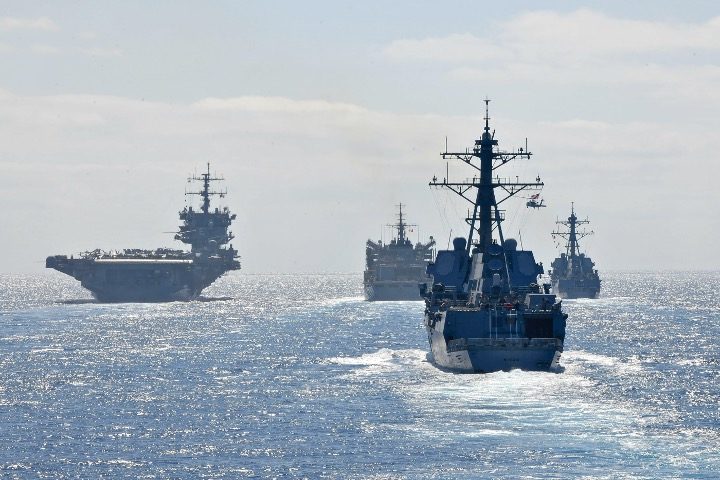
Thomas Jefferson, the Barbary Pirates, and the Constitution
“Yemen’s Houthis Become Today’s Red Sea Version of the ‘Barbary Pirates‘”
“The US Must Uphold Freedom of Navigation”
Those headlines and dozens like them introduce stories from both conservative and liberal media outlets praising Joe Biden for ordering airstrikes against Houthi interests in Yemen. The Houthis are accused of bedeviling international shipping in the Red Sea.
Several of these stories claim that Biden’s acts are not only constitutional and commendable, but no different than the deployment by Thomas Jefferson of American military force in the conflict with the Barbary pirates.
They are wrong.
In greenlighting the launching of missile strikes against the Houthis, Joe Biden, as I explained in a previous article, acted unilaterally, without regard to, recourse to, or respect for Congress, the people’s representatives and the branch of the federal government granted exclusive authority to wage war in the name of the United States.
Before Jefferson’s presidency, Congress enacted naval laws granting authorization for ships to
protect our commerce and chastise their insolence — by sinking, burning or destroying their ships and vessels wherever you shall find them.
Jefferson, utilizing the powers conferred by Congress, remained committed to manifesting America’s resolve in these matters. Nevertheless, he maintained that he was:
unauthorized by the Constitution, without the sanction of Congress, to go beyond the line of defense.
Acknowledging Congress’ exclusive right to sanction offensive military operations, Jefferson stated:
I communicate all material information on this subject, that in the exercise of this important function confided by the Constitution to the Legislature exclusively their judgment may form itself on a knowledge and consideration of every circumstance of weight.
Where is a similar statement from Joe Biden? Journalists from all along the political spectrum who insist Biden’s doing neither more nor less than Jefferson did, have an obligation to print a similarly constitutionally aware statement by Biden, a statement in which the White House pleads with Congress for power to carry out combat operations before carrying them out.
Silence.
The fact is that throughout the Barbary conflicts, Jefferson consistently sought congressional guidance, embodying his belief that America’s determination could be displayed within the confines of the Constitution.
Jefferson’s cautious approach in these engagements led Alexander Hamilton, then retired, to levy criticism. Writing as Lucius Crassus in the New York Post, Hamilton questioned, “What will the world think of the fold which has such a shepherd?” This remark followed a notable triumph where the USS Enterprise vanquished a Tripolitan corsair without any casualties and a blockade of Tripoli was established.
President Thomas Jefferson, in response to attacks on U.S. commercial shipping in the Mediterranean Sea by vessels under the control of the Bey of Tripoli, noted in his message to Congress of December 8, 1801, that it would be prudent for Congress to authorize the use of U.S. Navy forces to protect U.S. shipping against Tripoli, including permitting them to take offensive action against Tripolitan vessels.
On February 6, 1802, Congress responded to Jefferson’s request, passing further legislation authorizing the president to:
“Equip, officer, man, and employ such of the armed vessels of the United States as may be judged requisite by the President of the United States, for protecting effectually the commerce and seamen thereof on the Atlantic Ocean, the Mediterranean, and adjoining seas.”
Moreover, the president was authorized to:
subdue, seize, and make prize of all vessels, goods, and effects belonging to the Bey of Tripoli, [and] to cause to be done all such other acts of precaution of hostility as the state of war will justify, and may, in his opinion, require.
The president also received the power to issue special commissions to “owners of private armed vessels of the United States,” authorizing them to legally capture and take control of “any Tripolitan vessel, goods or effects” under the same conditions as U.S. Navy ships, following the directives provided by the president.
This law at once perpetuated the ongoing policy toward the pirates and affirmed its constitutional validity.
In every aspect of his behavior during the conflict with the Barbary pirates, Jefferson never exceeded the limits of the military authority established by Congress, the locus of all war-making power.
Arguably, Congress bestowed more executive authority than Jefferson sought. How many presidents have been similarly circumspect and constitutionally conscious in waging war?
As the intermittent conflicts with the Barbary states continued, Jefferson’s sustained efforts to protect American Naval and commercial shipping from Barbary belligerence eventually bore fruit.
American losses were minimal, and pirate attempts to dominate American maritime interests were disrupted until after the War of 1812.
Jefferson’s stance against the pirates was extraordinarily effective, with the majority of the conflict’s tribulations remaining unseen by the public. His success likely deterred European nations from unwarranted interference with America and stymied further pirate extortion.
Of most relevance for our own time and for the Constitution that should remain the measure of executive authority — in the case of calling out the country’s military and in every other issue — Thomas Jefferson refrained from using the situation as an excuse to deprive the people of liberty and debilitate the Constitution that protects it, a path taken by nearly every one of his successors.

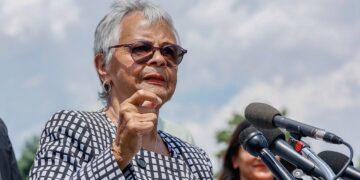
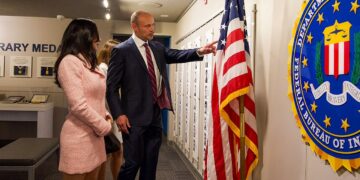
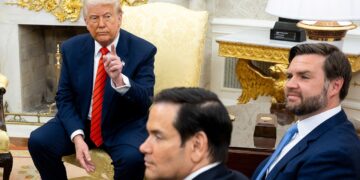





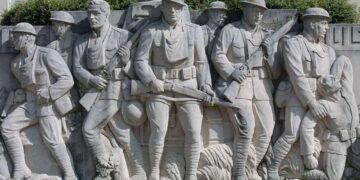






















 Reaction & Commentary
Reaction & Commentary







